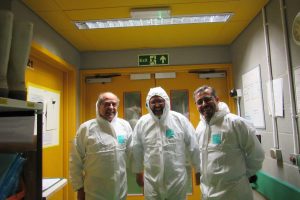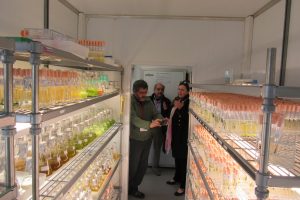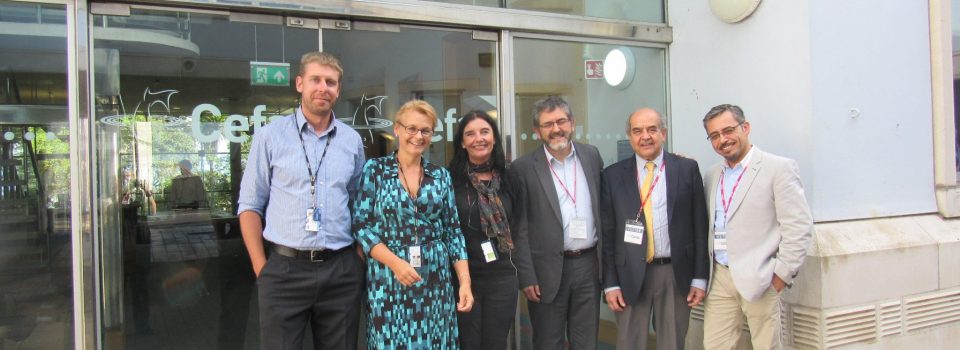Successful culmination of IFOP standards for aquaculture international research tour
September 26th, 2017
Experts from the Institute for Fisheries Promotion (IFOP) visited 7 research centers for aquaculture in 5 countries worldwide in a research associated with hydrobiological species cultivation. The experience gathered will enable us to determine the institutional arrangements, research areas, and the human and material capacities required in Chile to improve research with public value associated with aquaculture.
In the framework of the project “Strengthening and creation of technological capacities for public value research in aquaculture” funded by the Corporation for the Promotion of Production (CORFO), experts from the Institute for Fisheries Promotion (IFOP) visited the research centers in the area of aquaculture. The technical visits purpose was to learn first hand from how these centers manage institutional relations, develop and finance research, empower their researchers, and ultimately produce high-level research to solve problems and seize the opportunities facing modern aquaculture .
Technical visits were conducted at the National Institute of Water and Atmospheric Research (NIWA) in New Zealand; the Commonwealth Scientific and Industrial Research Organization (CSIRO) of Australia; the Norwegian Institute of Marine Research (IMR), the Norwegian Institute for Water Research (NIVA), and the Norwegian Institute of Food, Fisheries and Aquaculture (NOFIMA) all from Norway; Scotland’s Scottish Association for Marine Science (SAMS); and the Center for Environment, Fisheries and Aquaculture Science (CEFAS) of England.

In this regard, Leonardo Nunez, IFOP Executive Director, who participated in the technical visits to Scotland and England, said: “The visits we have made will give us a good overview of the world situation in terms of how science is organized for aquaculture, since the centers we visit range from those that have a non-profit corporation constitution, but with a certain public role as IFOP, even those that are purely state-owned. We were also able to understand how the national research agenda in aquaculture is built, what the role of the State, universities and private sectors is, and how the continuous improvement of research is promoted.
All this, within the framework of our national reality, will allow us to propose a model to articulate at our country level, science and research at the service of aquaculture and the ecosystems in which this activity is sustained.
In order to avoid institutional biases, the records collected will be delivered to an external consultant , who will have to develop a proposal for a national model for aquaculture research. ”
Leonardo Guzman, IFOP Head of the Division of Research for Aquaculture, participated in the visits to the research centers in Norway, he pointed out “that the organization of the three institutions visited have different orientations, given their origin and institutional missions , although from the perspective of the planning of the research work they show in common the simplicity with which they deal with the processes and the efficiency with which the different groups assume the work entrusted, and on the other hand, it is remarkable the meager of the apparatus of finance and administrative, which also operates with high efficiency. The State plays a very important role in ordering the areas of action and needs to achieve sustainable aquaculture. In all cases, institutions have the infrastructure and appropriate equipment to fulfill their respective functions, as well as high-level human capital; professionals who when they reach the highest levels of their respective hierarchies, assume responsibilities in the training of high-level professionals, in support of the work that universities approach in the training of doctorates. “
